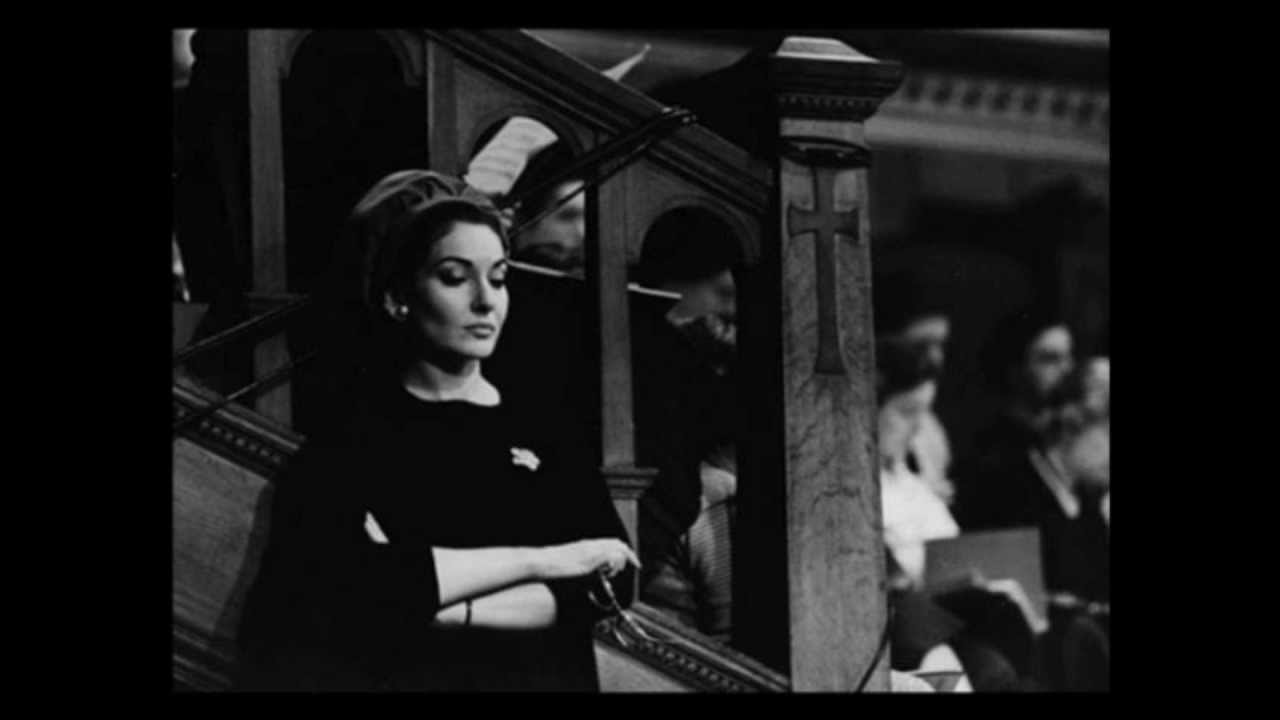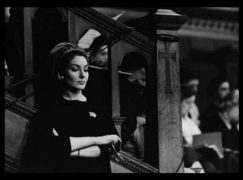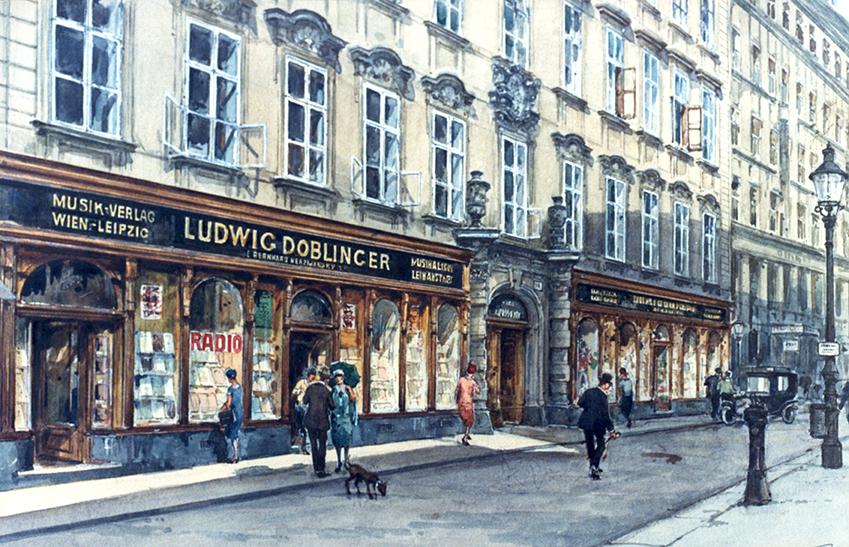When did any diva last rehearse for 6 weeks?
mainAnna Netrebko’s claim yesterday that she was never going to rehearse six weeks again for an opera drew howls of mirth from some of our maestro friends. One said the last time he saw her put in six weeks was around the turn of the century. Another thought she had imbibed too much of the Gergiev world view, which maintains that no rehearsal is often best.
Colleagues were quick to point out that Anna is far from being the worst rehearsal dodger.
One diva notoriously allocated just six days to a Munich production, while in Paris – which for some reason struggles to secure top voices – a celebrated tenor recently managed a new opera on no more than a walk-through.
Someone once said, work is what you can get away with.
C’est la vie.







There is a big difference between the European ensemble houses with a regular staff of soloists vs. the star houses. Ensemble houses can spend far longer periods rehearsing, and with results that are often superior musically and theatrically. The star houses bring in famous soloists at the last minute who have no time to learn complex stagings. Everything has to be simplified. The Met, which focuses on stars, is especially known for these park and bark productions.
I suspect that the higher overall standards obtained by ensemble houses, is why Paris doesn’t trouble itself with star singers.
You are correct only minimally.
Allow me to help. In general, a new production (meaning that it is new to that theater even if it has premiered elsewhere) is given roughly 6 weeks of rehearsal time. Some theaters, like the MET recently, have reduced it to 5 weeks to cut costs and it has had a rather challenging effect on the staff and performers alike. For revivals in most theaters, roughly 2 weeks are alotted–this depends also whether it is a repertory house or a stagione house, and the available rehearsal spaces. In what you call “Ensemble houses,” which is not really a term, merely that there are theaters which have a fixed ensemble, the opposite of what you say is true: they rehearse hardly at all. Guest artists are lucky if they even have a single rehearsal on stage with the orchestra! Ring Cycles in major theaters have been mounted in 2 days without an orchestra rehearsal.
The reality is is that most…I repeat, MOST directors have no idea how to efficiently manage rehearsal time. Add to it the fact that different rule exist for different singers (who is allowed to be 1 day or 10 days late, who is allowed to run off and sing a concert here or there, who is allowed to finish a run in another theater before arriving…there is no standard, these variables are arbitrary and plenty of singers lose work and opportunities because a theater refuses to allow them to arrive late while accommodating tardiness for others.
Too many rehearsals tire the singers and usually result in too much wasted time, too many late arrivals…too little rehearsals result in clumsy performances, singers taking excessive staging liberty, and stressed out performers.
So many undocumented assertions and from an anonymous source. Not convincing.
Yet true…..
You’ve never worked for any length of time at a major opera house, clearly.
His/her point about stage directors is very true, though.
Except….. “Anon I Must” sounds like a singer or somebody who works in an opera house. And, hence, must stay anonymous! {;-)
Yes, this is very accurate.
All the claims here are anonymous and undocumented, and unexplained. Here are a couple sources to confirm my comments about the problems with the star system.
In regard to the star system and its problems, the Director the Bavarian State Opera is quoted in the NYT:
“Nikolaus Bachler, the general manager of the Bavarian State Opera in Munich, said that he sees opera in a different light. “Opera is not about stars,” he said in an interview. ‘Opera is an artistic space, and not a service business and not an entertainment industry.’?
It goes on to discuss the conflicts the Met had with Jonas Kaufmann due to his unwillingness to attend entire rehearsal periods. It also explains that the Met needs the draw of stars for its box office and is thus reluctant to cross stars who won’t attend long rehearsal periods.
And yet the commentators here claim not to have even heard of the problems of the star system. The NYT article is here:
https://www.nytimes.com/2017/03/08/arts/music/jonas-kaufmann-a-tenor-in-demand-now-in-short-supply.html?smid=tw-share&_r=0&referer=https://t.co/J34mDUDOnm
And here is a telling quote from the Schompera web site the corroborates the points I made and makes similar points:
“There’s something wholly irritating about the practice of operatic superstars blowing into the rehearsal room just in time for Sitzprobe, or for a few hours of staging refresher at the end of a weeks-long rehearsal process. It’s irritating not because singers aren’t entitled to make more money, or spend time at home when they can swing it; it just doesn’t sit well with us, that the big name singers – the kinds who earn that top fee at the Met – basically skip the real process of creating opera.”
The article also says:
“On Sitz day, or maybe the first onstage technical rehearsal, the “star” arrives and inserts herself into what’s basically an already-finished product. Or rather, they do so to the best of their abilities, given that they’ve been literally absent for the hours that make opera engaging, instead of demonstrative. Frankly, the results of a production where 80% of the cast were there for rehearsals, and 20% showed up weeks late (and of course, they’re always the lead characters), are just not that good. It’s not cohesive. It’s a shame, visible to the members of the creative team who were there from day one.”
There are additional articles that could be sited.
It is true that the Met under Gelb has tried to create more theatrically integrated opera, even to the point of cancelling Kaufmann’s appearance in Tosca, but it still suffers from the sensibilities of the star system upon which it is dependent. And whatever changes may be occurring at the Met, the differences between ensemble and star houses is real as these articles document.
If anyone wants to meaningfully discuss these matters, use your real name, and provide some documentation. Otherwise, your anonymous and undocumented comments will be less than credible.
“The Management of Opera: An International Comparative Study” by P. Agid, J. Tarondeau is another important source that discusses the differences between the star system and the ensemble houses (that term that supposedly doesn’t exist.) Tarondeau also discusses the history of how these two systems evolved. A relevant passage can be read on Google Books here:
https://books.google.com/books?id=1oyFDAAAQBAJ&pg=PA78&lpg=PA78&dq=opera,+ensemble+vs.+star+houses&source=bl&ots=VxOutVmaTL&sig=ACfU3U0GFDX4riaTClWQRCRst764yXOV6Q&hl=de&sa=X&redir_esc=y#v=onepage&q=opera%2C%20ensemble%20vs.%20star%20houses&f=false
William:
Please stop embarrassing yourself. The person “Anon I Must” really does know how it works.
Repertory companies (you seem to have labelled them “ensemble companies”) simply can’t afford to extensively rehearse new shows for weeks since they need to keep performing their current shows every night. And for revivals, these ensembles already know the opera (shame about the hired-in-star not knowing it, but everyone else does).
The only operas that need really long rehearsal periods are completely new pieces (or pieces that have not been performed by the company for a long time).
You have no idea what you’re talking about re: Met rehearsals. Just recycling old stories.
Perhaps Paris fails to attract top voices because its Casting Director doesn’t communicate with agents?…
it was such a boring TOSCA at La Scala mostly due to an very dull conducting by Chailly! Production looked liked an homage to Franco Zeffirelli
How dare you are posting a pic of the one and only Maria Callas – good to have Anna but she is a different league!
Tristan, I understand your point about Tosca. I have always wonder how this opera could be anything but boring . But , sadly , we are witnessing run of the mill , under rehearsed , superficial productions of many of the great masterpieces of opera . Some directors, also, should bear responsibility for wasting precious time in rehearsal. It is no service to opera to cut down on rehearsal time . At the same time directors need to be well prepared and efficient in their work to ensure fine and meaningful realization of opera in its fullness (music + drama) . The stars themselves could pay more attention to this in order to ensure that quality rather than quantity is important in the arts.
That’s the problem!
Didn’t she turn up early to be at this year’s Royal Opera Forza del Destino? And wasn’t Kaufmann late?
It’s generally accepted in most major opera houses that the majority of star singers (and we’re talking a very small handful of singers) will not do 6 week of rehearsals. They will want to maximise concerts/performances and minimise time spent away from home and families – and have the clout to insist on this. Places like the Met can sometimes throw on a revival with barely any rehearsal as it is. Glyndebourne is one of the few international companies that has lengthy rehearsal periods and can do this because it generally avoids star singers and primarily concentrates on those towards the start of their careers.
This is an accurate report in contrast to some of the nonsense above.
M Le Balai , I think that this is a thoughtful and well balanced evaluation of the problem.
Divas and divos do not need rehearsals. No matter the dramatic situation, they play the same role, namely themselves. Sometimes this suits the production, sometimes it doesn’t. ( Kaufmann plays the “neurotic” Kaufmann-this is his usual dramatic persona, Netrebko always plays the Netrebko lioness with girlish tendencies etc etc .)
And we wonder, dear Bloom, why we sit in our seats at the opera nowadays and are often left unmoved and thinking of tomorrows chores and mundane things rather than the glorious music and voices before us. Ida & Louise Cook, two English girls who loved opera, used to cross the Atlantic by ship for Galli-Curci and Ponselle performances, having saved up for a year for the tickets. I guess we have lost our appreciation of time in just one century.
Maria Callas would argue this point differently. No one, from the smallest role to the largest, the chorus, the lighting technicians, the costumer, the makeup staff, the stage staff, is unimportant to the success of the whole production.
Callas was sometimes described as a difficult person to work with, but the reality was that she cared for every detail of a performance and was always striving for perfection from the ensemble, the team. Opera cannot be superb with just a few star singers and a crowd of employees merely doing their job. It depends on a carefully and lovingly rehearsed effort to achieve a seamless team effort.
How appropriate to see the photo of
our beloved Maria Callas , and to be reminded of the days when rehearsals were lengthy, detailed, caring, serious hard work and a great pleasure for all involved. One great old maestro once told me that when Arturo Toscanini came to work on an opera, it was normal to spend 3 months of daily rehearsal on an opera of the standard repertory, such as La traviata. A new work took longer. Ah! those were the days.